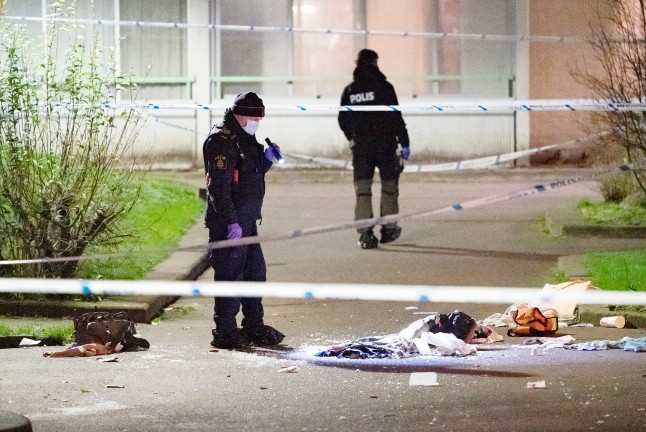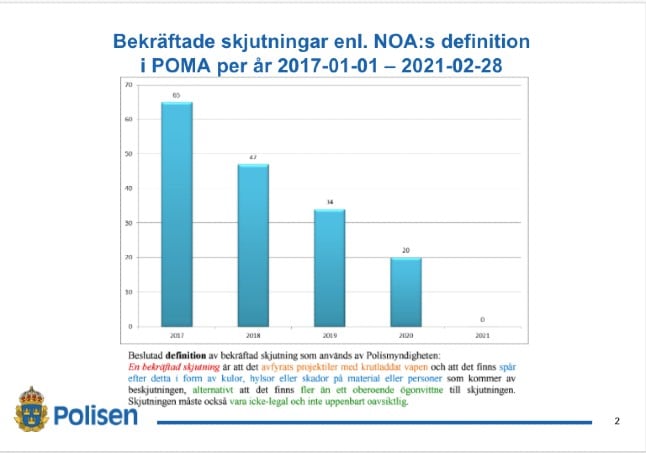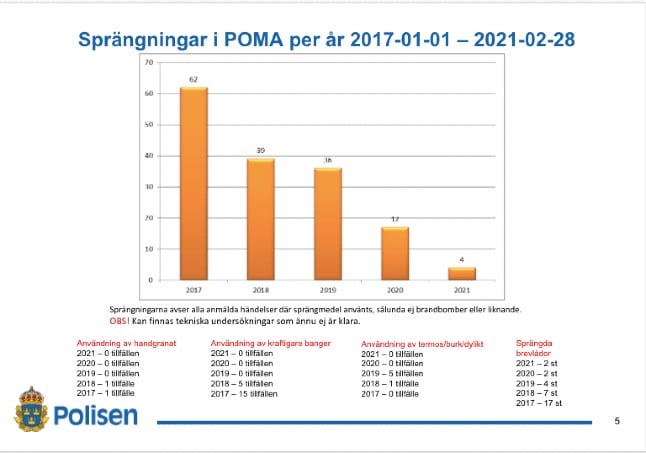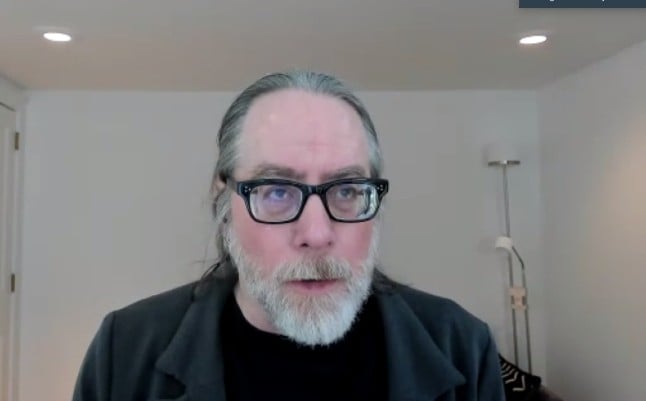“We have been mainly focusing on drugs,” said Anders Trägårdh, head of operations at customs in Malmö, to daily newspaper Dagens Nyheter (DN).
The debate about the illegal smuggling of weapons has been given a new lease of life after a recent rise in violent crimes in the Malmö region.
But in the government directive given to the Swedish customs agency they are told to focus on drugs, alcohol and cigarettes in order to combat organized crime in the country, according to news agency TT.
Illegal weapons smuggling isn’t mentioned in the directive, reported daily Svenska Dagbladet (SvD).
Today customs at the Öresund bridge have around 40 sniffer dogs trained to find drugs, but none especially trained to find weapons, unlike the county police with several dogs that can track both weapons and ammunition at their disposal.
And that weapons are brought in over the Öresund bridge is not news to the local police.
“Skåne is a prime spot for smuggling illegal weapons, so we are under extra pressure. We have asked for tighter regulations on smuggling for a long time,” said Lars Förstell, of the Skåne police to Svenska Dagbladet (SvD).
At least 200 weapons are being confiscated by the police in Malmö annually – but there has been no direct focus on stopping them from coming in to the country in the first place.
According to the Swedish National Police Board (Rikspolisstyrelsen) weapons are primarily being brought into the country from the Balkans in small consignments by land in buses or cars.
Trädgårdh doesn’t want to call the fact that the customs only seized seven illegal weapons last year a failure.
“Considering the way the situation looks right now we wish we would have discovered more. But I don’t want to use terms like ‘failure’. We make a large number of controls and we are very successful when it comes to drugs and alcohol,” said Trädgårdh to DN.
The customs will now select likely candidates among the drug sniffing dogs to be trained to sniff out weapons and ammunition.
However, according to experts there has to be more efficient cooperation between customs and police on both a domestic and an international level.
“Swedish authorities won’t be able to combat the weapons smuggling on their own, but an extensive international cooperation must be in place,” said Gunnar Wärnberg, illegal weapons expert at the National Police Board to DN.
Sven-Erik Alhem, the chairman of the Swedish National Association for Crime Victim Support (Brottsofferjourernas riksförbund) is critical that customs aren’t making more weapons discoveries.
“Swedish customs have a key role in this. It is high time for them to change their focus. They should not abandon the drugs search, but I think they need to give weapons a higher priority,” he said to DN.






 Please whitelist us to continue reading.
Please whitelist us to continue reading.
Member comments